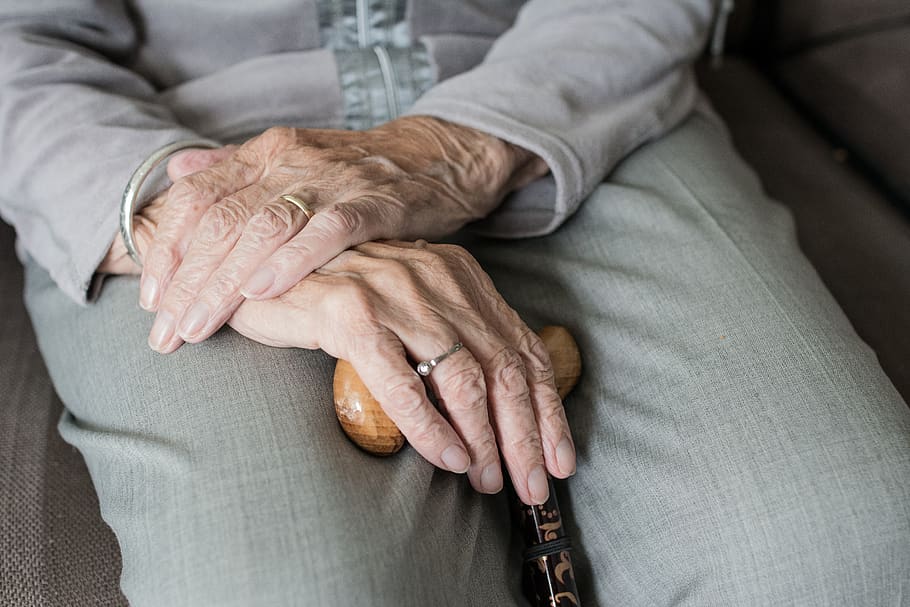Dr Arun Midha discusses how Wales can care for its elderly citizens when they’re at their most vulnerable.
‘The test of a civilization is in the way that it cares for its helpless members’. So said the Noble prize winner Pearl Buck, writer and civil rights activist nearly 70 years ago. These words were apt then and here in Wales, they are equally apt now.
The Health and Social Care committee in the Senedd is currently holding an inquiry into supporting people with chronic conditions, with a particular focus on how we as a Nation care for the elderly. When the committee reports on its findings, it would do well to test its thinking against Pearl Buck’s challenge.
In many ways an ageing population is a success story. The changing demography of Wales over the past 100 years, at one level, can be seen as a triumph: the number of people aged 75 or older is projected to increase by 23.9% to 380,200 between mid-2020 and mid-2030. The population aged 65-84 years is expected to increase from 554,000 in 2016 to 703,000 in 2039 (27% increase) and the population aged 85+ years is expected to increase from 81,000 to 183,000 (127% increase). The decline in infant mortality giving generations of people the chance to get old and advances in medicine also mean that many of us stay physically robust, engaged and active well into our autumnal years.
One significant opportunity could be for the Health and Social care committee to focus on the reablement approach.
A key question, however, is: how does society reflect on these changes? Sadly, ageing is more often than not seen as a societal burden, not a triumph, where old age is associated with greater dependency, not least because of increasing multimorbidity (where someone has a number of long-term chronic conditions that they are having to cope with) and a tendency to forget the value of the elderly as net contributors to society, a contribution that can be enhanced if we invest in a health and social care system that truly adds years to life and life to years.
There is absolutely no doubt that both the NHS and social care services in Wales have a willingness to treat the elderly who have long term chronic conditions within the community. However, in terms of capability and capacity through appropriate systems and structures, the picture in Wales remains mixed. This includes having a robust primary care system and ensuring that social care has sufficient capacity in terms of carers able to meet the demand. This situation contributes significantly to putting patients with multimorbidity in a position where they require unnecessary readmission to hospital, decreasing their opportunity to return to their own home and increasing the chance of a permanent move to a care home, thus resulting in a higher risk of losing their independence.
Unfortunately, the discussion surrounding the elderly with long-term conditions who are admitted to hospital following an acute episode, stabilised through medical intervention and subsequently considered as being medically fit for discharge, often results in discharging patients straight to a care setting. This can be a residential or, if more clinical support is required, a Nursing/EMI setting (where clinicians are ‘on-site’ over a 24-hour period). What is often overlooked is the intermediate opportunity of reablement.
Robust debate and agenda-setting research.
Support Wales’ leading independent think tank.
Reablement consists of a specialist team made up of GPs, nurses, therapists such as physiotherapy, speech and language therapy, social workers and care staff. Together they work collaboratively over a time-specific period with those who are considered medically fit to be discharged from hospital but remain with multimorbidity in order to undergo rapid, intensive interventions to help individuals get to a position to be able to do as many things as they can for themselves. In so doing they can regain lost abilities, skills and confidence and learn new ways of doing things to be able to live life as fully and independently as possible, in their own home, within the context of their long-term conditions.
One significant opportunity could be for the Health and Social care committee to focus on the reablement approach. Currently this remains an underfunded, Cinderella service in Wales where provision is patchy at best. One exemplar though is Bonymaen House, Swansea, a 29-bed specialist care home that has demonstrably achieved remarkable results in successful reablement of the elderly many who otherwise would not have achieved an optimal state of health and not be able to return to their own home but find themselves in a care or nursing home with the resultant loss of independence
If the Health and Social Care committee does wish to pass the test set by Pearl Buck, then promotion of a coherent all-Wales reablement strategy would go a long way to ensuring success.
All articles published on the welsh agenda are subject to IWA’s disclaimer. If you want to support our work tackling Wales’ key challenges, consider becoming a member.





